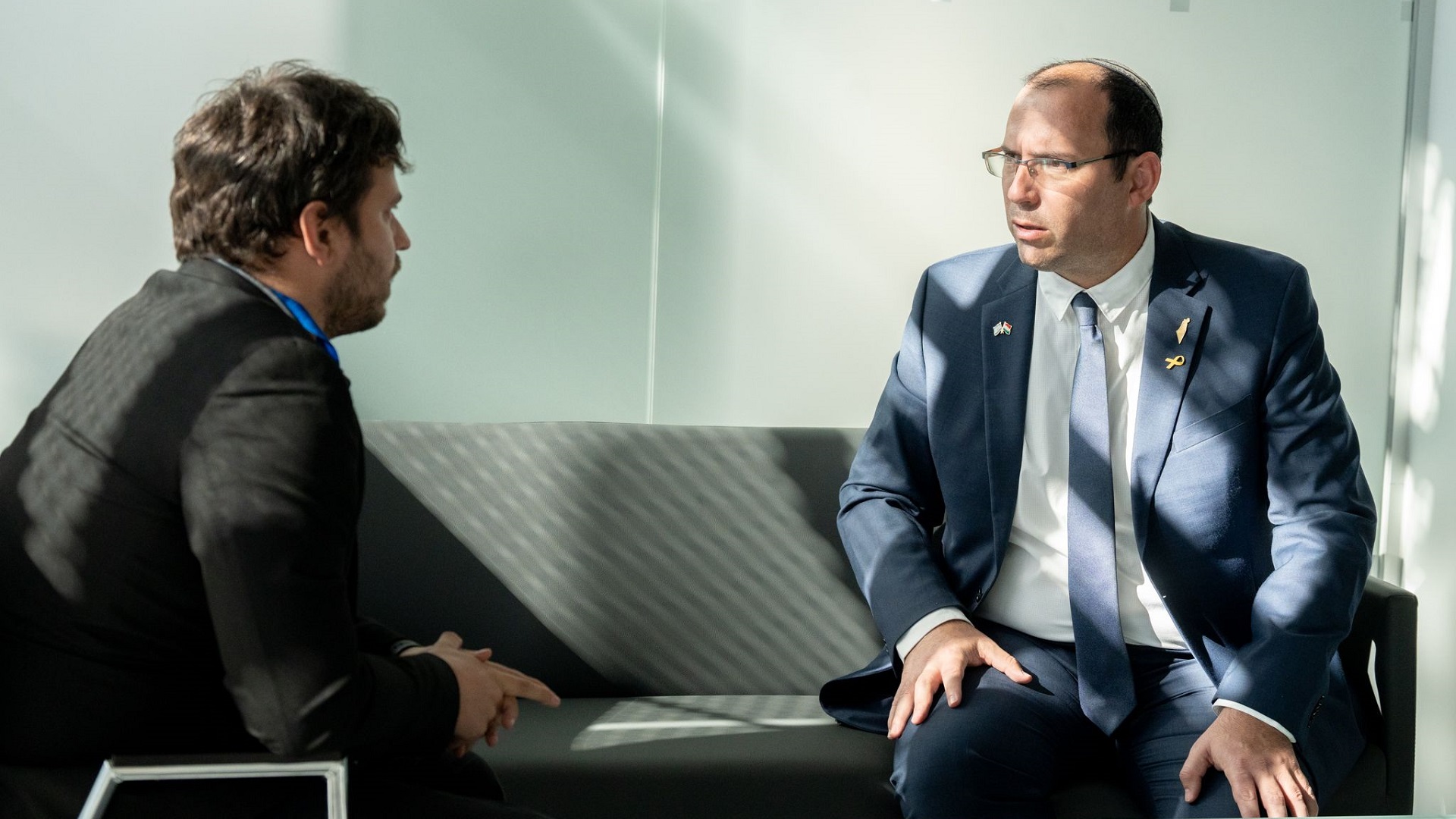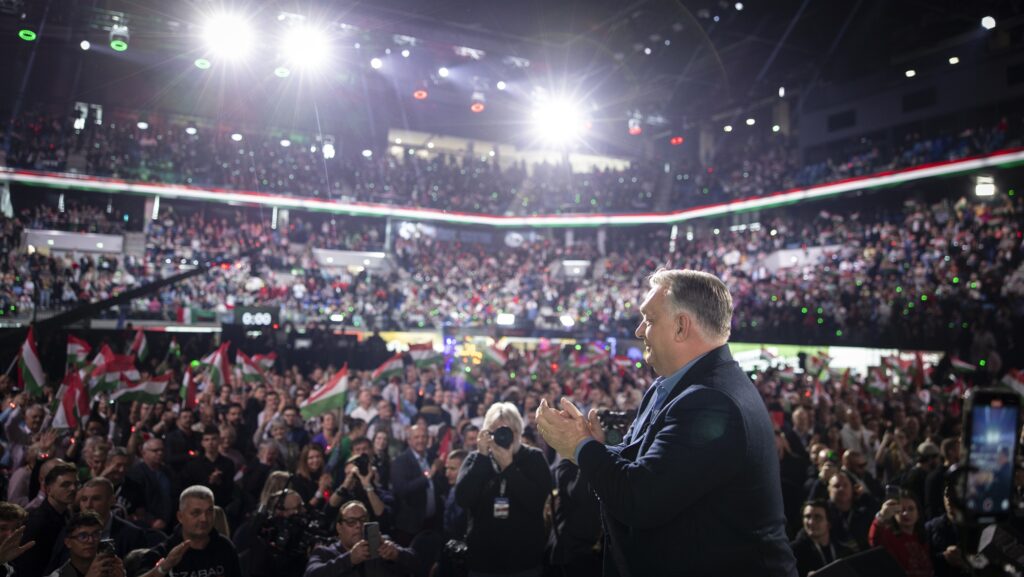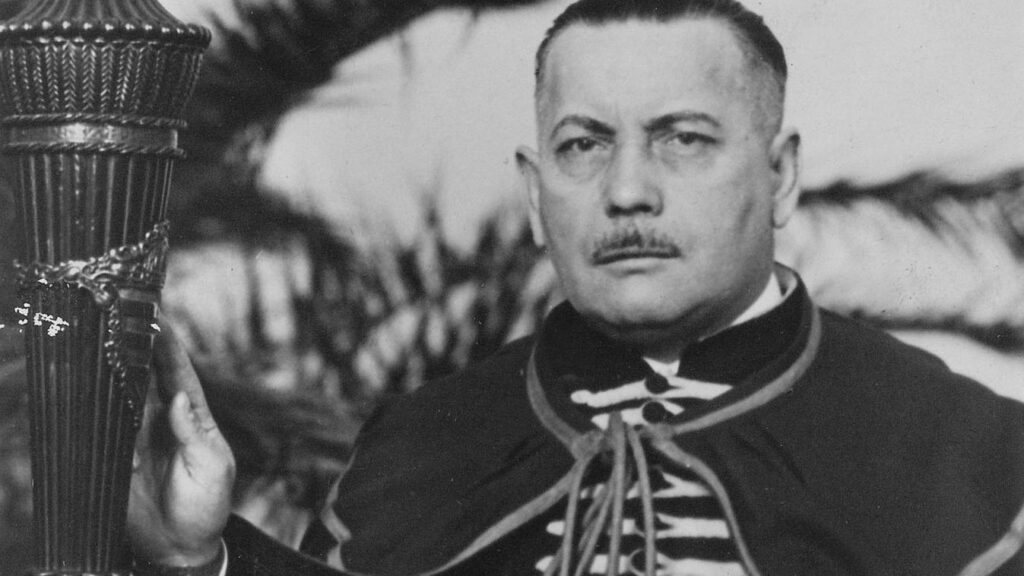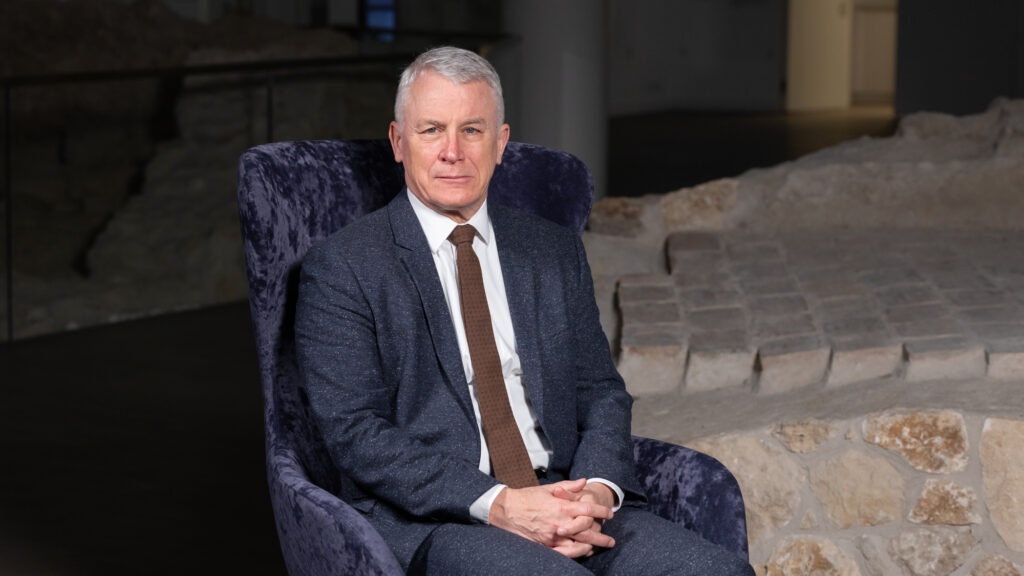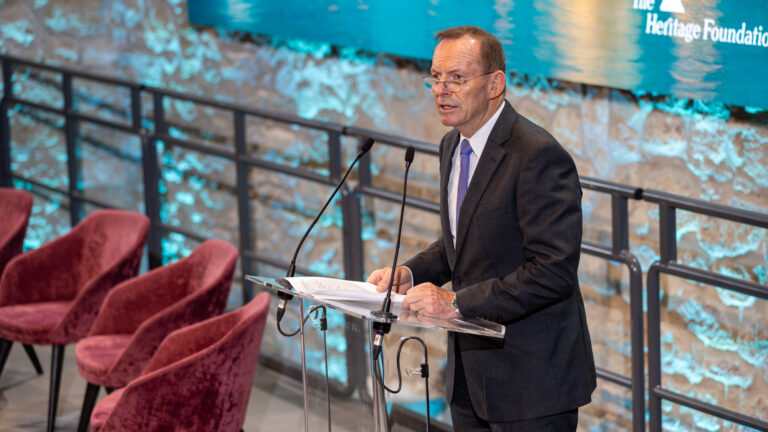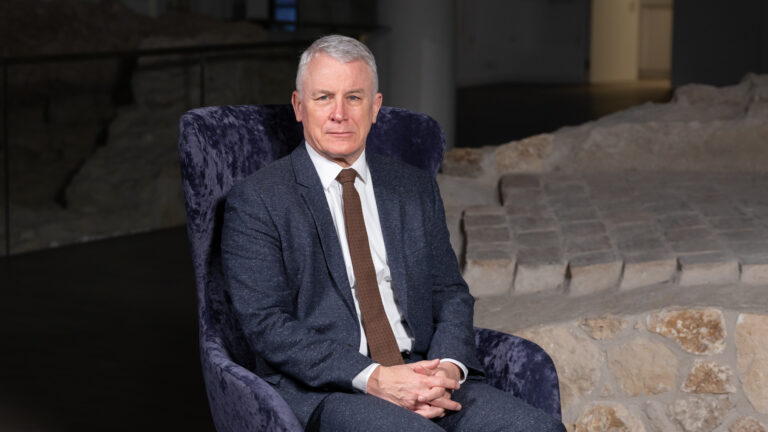Simcha Rothman is a sitting member of the Israeli Knesset, representing the National Religious Party–Religious Zionism, part of the governing Netanyahu administration. He has been serving in the national legislature since 2021. Mr Rothman recently travelled to Budapest, Hungary to speak at the second International Pro-Israel Summit, hosted by the Center for Fundamental Rights.
***
As a European, as I was following the news about the Hamas–Israel war, in July I had the impression the Western mainstream media made it seem like a lasting long-term peace was close when the two sides were starting to meet in Doha, Qatar. Was that the case to you as an insider? Was there a real chance of a peace agreement back in July?
I think that you can never have a peace agreement with Hamas. And there were no talks on peace agreements with Hamas ever, because Hamas’ ideology is to kill all the Jews. You cannot have peace with this. There were talks about a hostage deal that, in my point of view, of course, Hamas said no to, as to every deal that was on the table. And that’s common knowledge. I have to say, as a representative of the state of Israel, I can tell you that if there was a deal on the table that Israel agreed to, Hamas always said no. However, if you ask me about the right approach, in Israel I am the constant voice that says that even negotiating with Hamas makes the deal go further away. You should never negotiate with Hamas.
And I think what we saw in the past few months is just that. We negotiated with Hamas through indirect negotiations to try to get a hostage deal. Hamas will always say no, it’s a waste of time. It’s better to apply more and more and more pressure, military-wise, and maybe get the people who are holding the hostages to run for their lives and ask for small deals. But there is one thing they should know. And that’s—now I return to the formal stance of Israel—that after the war, Hamas will not exist in Gaza. We cannot have 7 October all over again. No normal country will ever agree to have its citizens threatened the way Israel was. Anyone who wants to reach the peace and quiet in the neighbourhood that Israel does, has to eliminate the forces who work every day to eliminate peace and quiet.
‘I think that you can never have a peace agreement with Hamas, because Hamas’ ideology is to kill all the Jews’
In your speech at the International Pro-Israel Summit, you mentioned that militarily there have been some Israeli successes lately. Can you elaborate on that, what were those successes?
So we all heard about getting rid of Nasrallah, for which, believe it or not, we were applauded by many, many Arabs in Syria, Lebanon, and Iraq, all around the world, because Nasrallah and Hezbollah have killed way more Arabs than they killed Jews. They are a threat to peace. They fight.
So the fact that Nasrallah has been killed means the world is a better place now than when Nasrallah was in this world. But it’s not only Nasrallah. The operations that took place in Lebanon and are happening as we speak now are eliminating Iran’s most powerful proxy. The threat to Israel through Iran’s proxies is unbearable, and Israel is dealing with them one at a time. We dealt with Hamas, and we will continue. They’re still not finished. Now we are dealing with Hezbollah. We dealt with the Houthi, and we will not rest until Israel is safe.
During wartime, the popularity of national leaders often increases. Do you think that was the case for Prime Minister Netanyahu? Do you think that he has more support now than he had before the Hamas attack last year?
I think in the beginning there was a blowback against the government, because it happened under our watch, despite the fact that my party and myself, but not only my party and myself, but also the leadership in the government were trying to change the course of the state of Israel. For many years, the course of the state of Israel was towards appeasement and accepting terror as part of reality, which we shouldn’t have agreed to to begin with. So, people were furious in the beginning that this attack happened on our watch. But as time goes by, I think more and more people see that the approach that the coalition, the right-wing coalition leads towards this war is the right way. They see the people in the opposition; that if the leader of the opposition would get his way, we would have a ceasefire with Hezbollah, we wouldn’t have assassinated Nasrallah, and Hezbollah would still be a bigger threat. The fact that Benjamin Netanyahu and the right-wing coalition are in power now means that I think the course of the war is way better than it could be under any other government.
Of course, I would like to see more done. I waited for the entrance to Rafah for three months. The pressure from the outside was terrible. We withstood this pressure, but it took us time. I think we are on the right path. And I think the public, as recent polls show, the public sees it.
Do you believe the previous administration has some culpability in the attack happening?
I think that the main thing about responsibility is that people who were part of the problem and made it even worse, they just run away from responsibility while claiming that we are not taking responsibility. The current government takes responsibility and deals with the problem. Benny Gantz from the last government was the Minister of Defense for three out of the four years before the war. This did not start in one day. Hamas did not build its power in a year. Hamas people, workers from Gaza started to get into Israel during the last government. I think we can take responsibility for not stopping it or not stopping it fast enough, but we did not start it. And suddenly the people that were in charge disappear. So of course the government, the sitting government is responsible. We are responsible, first and foremost, for taking care of the problem. We want to make sure that when we are leaving office, when our term ends, hopefully in 2026, we will leave Israel in a safer place than when we got it. That is our commitment and currently that is what we do.
In your speech you also talked about an experience you had at the University of California, Berkeley. Can you talk about that? And maybe can you contrast it with the reception you receive in Hungary?
In Berkeley, I was invited to speak there by the Federalist Society, which is a conservative group of lawyers and students in the US. And I was, of course, very happy for the invitation and to come, because the people that are of conservative legal thinking in Berkeley are in the minority and anything I can do to help them, I will do. As, I would say, expected, both the pro-Hamas mob—I would not say pro-Palestinian because it does not help the Palestinians what they do—from the far left in the US, together, sadly I must say, with the Israeli left, tried to stop me. But the people who were more violent were the pro-Hamas mob. They shut down the conversations, they pulled the fire alarm, they evacuated the entire building. But of course we continued. I met later with the students who wanted to hear from me in a different location. We had the conversations that we wanted to have to begin with.

Of course, in Hungary, the welcome and the love that the state of Israel gets are very different. So is the intolerance of the intolerance, which is the most important thing, because you don’t have to agree with everything I say, no one has to agree with everything I say, but the fact is that you are not tolerating intolerance. If you are not letting the violent people enjoy their free speech, like it happened in Berkeley, you are preventing the freedom of speech of the people who were not violent, that’s the main problem. And I think on that issue, Hungary got it right. It should not be tolerant of this intolerant mob.
‘In Hungary, the welcome and the love that the state of Israel gets are very different’
In terms of foreign policy, do you think the Orbán government has been effective in supporting Israel?
Of course, considering the support to Israel, in terms of votes and within the EU establishment, and all around, I believe Hungary is a great friend to Israel and Prime Minister Orbán is a great friend to Israel.
We, of course, appreciate what has been done. We are looking forward to the future. And we think that as many people here said, we have a lot to learn from each other, and we have a lot to benefit from this alliance. The fact that Hungary is one of the very few pro-Israel voices in the European continent and in the EU is something that we need to work on because, as we see in many places, if you are the enemy of Israel, you’re the enemy of the Jews, and you are the enemy of free speech and free thought all around the world. That’s why it’s important for everyone who wants to continue and live in this world to join forces and make sure that the right kind of approach wins. We will win elections all around Europe and get the right kind of ideologies in power that, again, do not tolerate the intolerance of the woke establishment.
Related articles:

